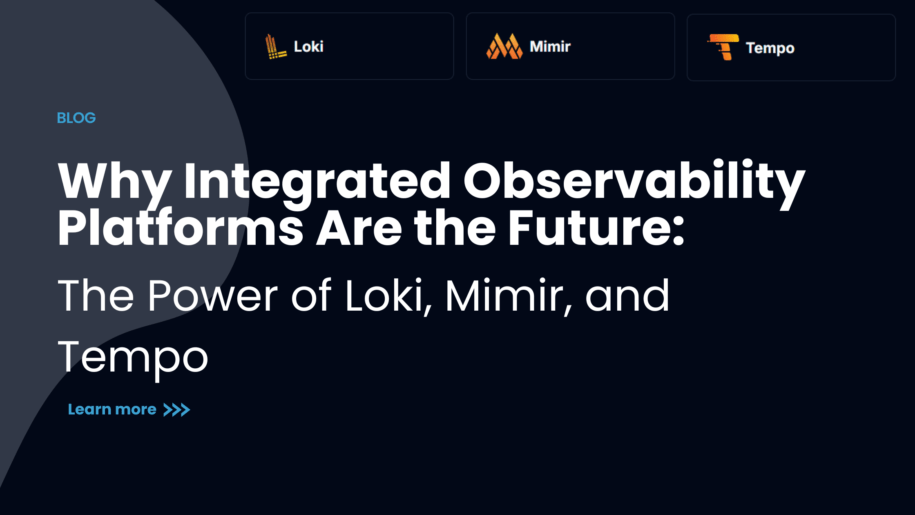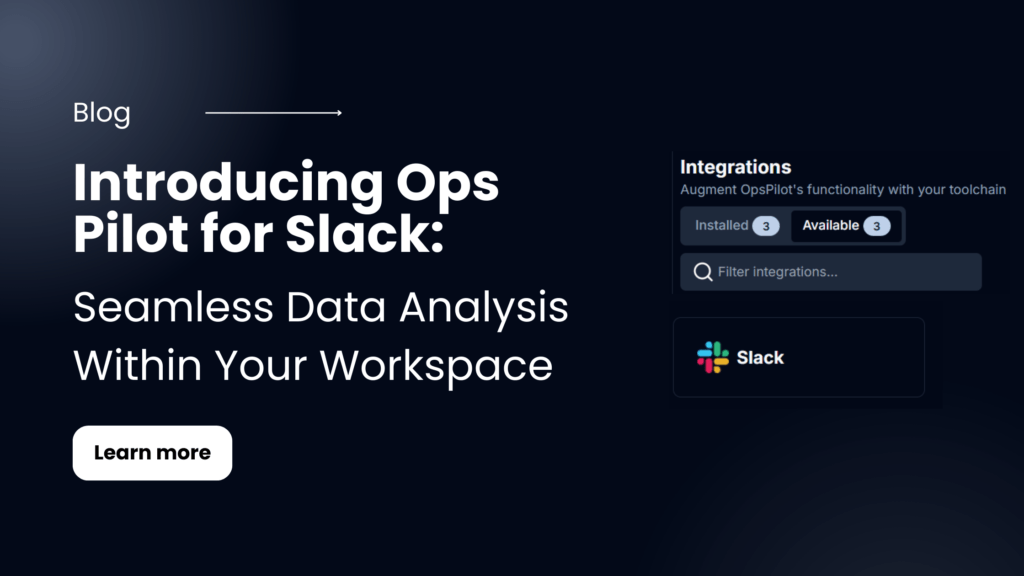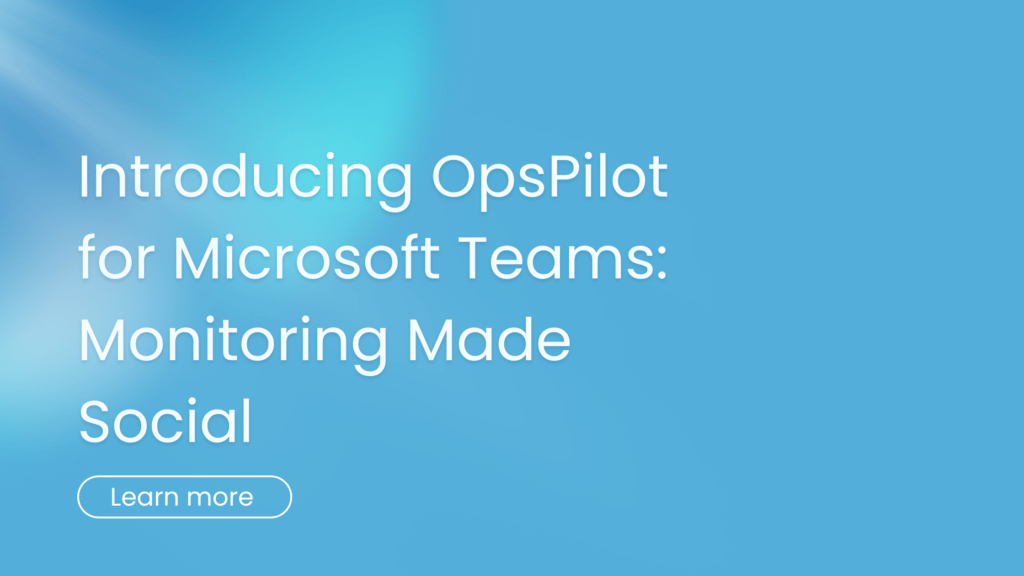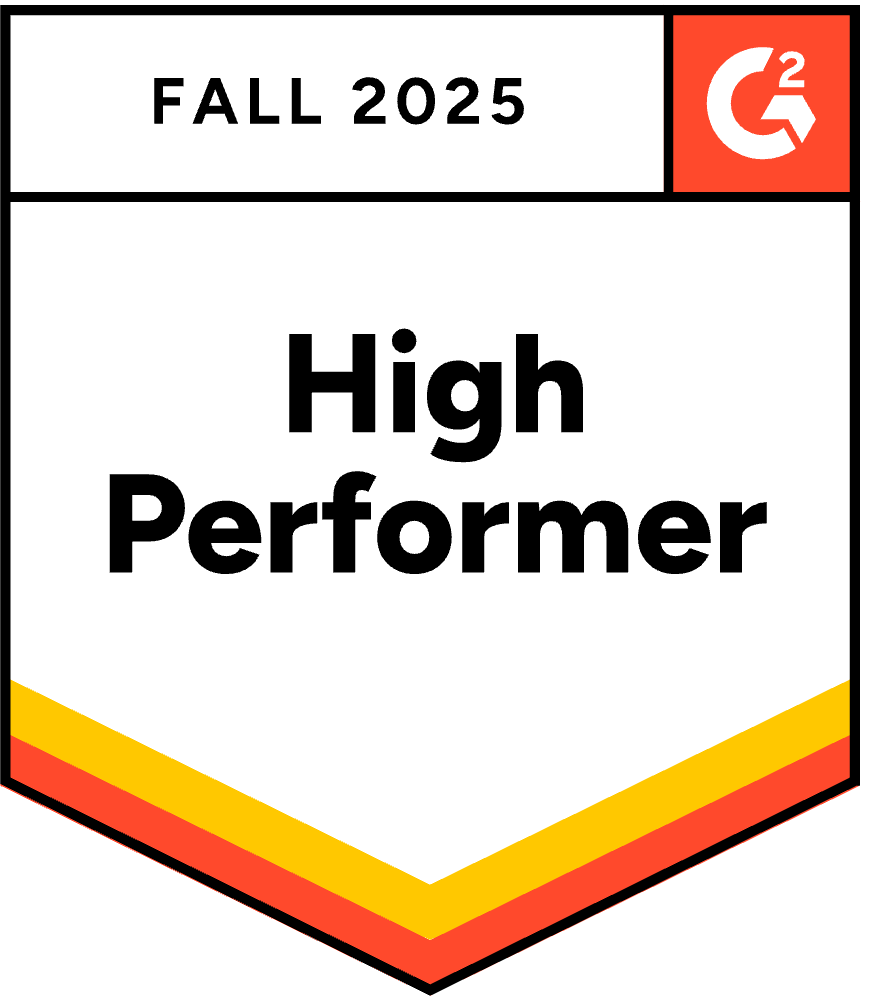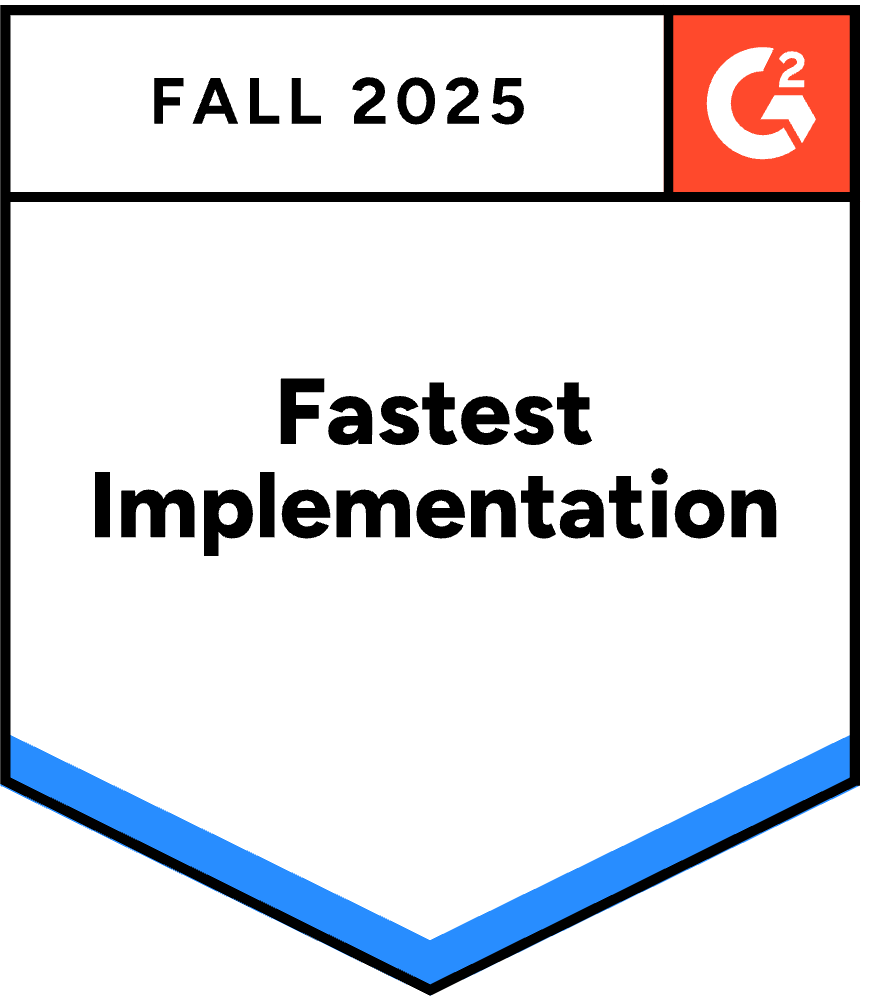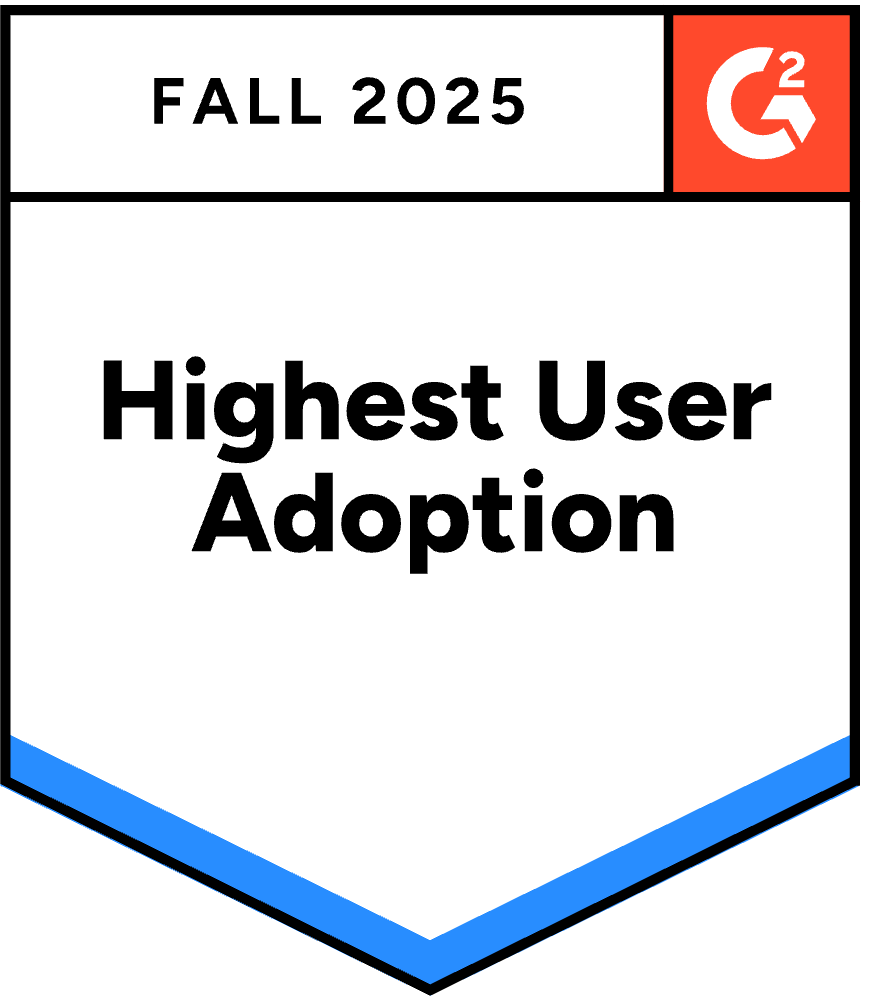The Power of Loki, Mimir, and Tempo
Understanding and troubleshooting complex systems has never been more critical in today’s rapidly evolving tech landscape. The need for comprehensive observability solutions becomes increasingly apparent as organizations continue to embrace cloud-native architectures and microservices. But what makes an observability platform truly effective? Let’s explore why having out-of-the-box integrations with Loki, Mimir, and Tempo is a game-changer for modern observability.
OpsPilot: Pre-Integrated Observability Out of the Box
FusionReactor stands out in observability by providing seamless, pre-built integrations through OpsPilot AI with Loki, Mimir, and Tempo. This means you can start monitoring your systems immediately without any additional implementation work or complex setup processes. Let’s explore what each of these powerful components brings to the table:
- Loki: Handles log aggregation and analysis, making it possible to search and analyze log data at scale
- Mimir: Manages metrics storage and querying, providing insights into system performance and behavior
- Tempo: Enables distributed tracing, allowing you to follow requests as they travel through your system
When these three powerful tools are integrated into a single platform, magic happens.


1. Complete Visibility Across Your Stack
Imagine trying to solve a puzzle with pieces scattered across different rooms. That’s what it’s like troubleshooting with separate, disconnected tools. An integrated platform brings all the pieces together in one place, providing:
- Seamless correlation between metrics, logs, and traces
- A unified view of your entire system
- Quick transitions between different types of telemetry data

2. Faster Problem Resolution
Time is money, especially when dealing with system issues. With integrated observability:
- Engineers can quickly pivot between metrics showing an anomaly
- Dive into relevant logs for context
- Follow the request path through distributed traces
- Identify root causes faster than ever before

3. Cost-Effective Operations
In today’s economic climate, efficiency isn’t just nice to have—it’s essential. Integrated platforms offer significant cost benefits:
- Eliminate the need for custom integration work
- Reduce overhead from managing multiple tools
- Optimize storage and analysis costs
- Streamline team operations
Future-Proofing Your Observability Strategy
According to recent Gartner research, organizations face growing challenges in observability:
- Increasing volumes of telemetry data
- More complex cloud-native environments
- Multiple stakeholders needing access
- Rising costs of data storage and analysis
An integrated observability platform with Loki, Mimir, and Tempo addresses these challenges head-on by providing:
- Efficient data ingestion and storage
- Unified access for different teams
- Built-in data management capabilities
- Cost-effective analysis options
Real-World Impact
The benefits of integrated observability extend beyond technical advantages. Organizations using integrated platforms report:
- Reduced mean time to resolution (MTTR)
- Improved collaboration between teams
- Better understanding of system behavior
- More proactive problem prevention
Getting Started with FusionReactor
One of the biggest advantages of FusionReactor is that these integrations come ready to use out of the box. Unlike other solutions that require extensive setup and configuration, with FusionReactor you can:
- Start monitoring immediately after installation
- Access all three observability pillars from a single interface
- Skip complex integration work and custom development
- Focus on gaining insights rather than managing tools
.
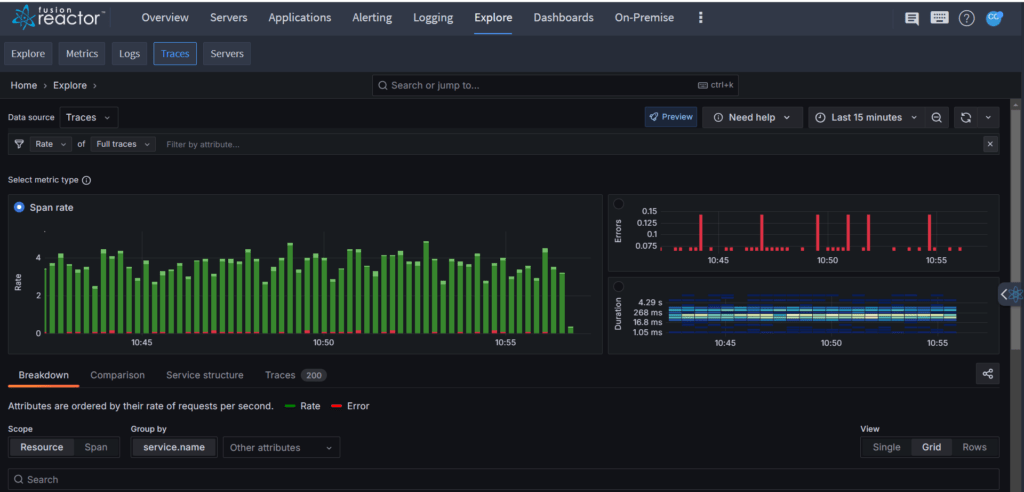
Here are some best practices to maximize your FusionReactor implementation:
- Start with clear objectives for what you want to monitor
- Implement consistent tagging and labeling across all telemetry data
- Train teams on using all three types of telemetry effectively
- Establish clear processes for cross-team collaboration
- Regularly review and optimize your observability strategy
Conclusion – Integrated Observability
The need for comprehensive observability solutions grows as systems become more complex and distributed. Platforms that integrate Loki, Mimir, and Tempo out of the box offer a powerful solution to this challenge. By providing unified access to logs, metrics, and traces, these platforms enable organizations to maintain visibility, control costs, and resolve issues faster than ever before.
The future of observability lies in integration, and platforms like FusionReactor that offer these capabilities out of the box are leading the way. By eliminating the need for complex setup and custom integration work, FusionReactor enables organizations to focus on what matters most: understanding and optimizing their systems. Book a demo.

